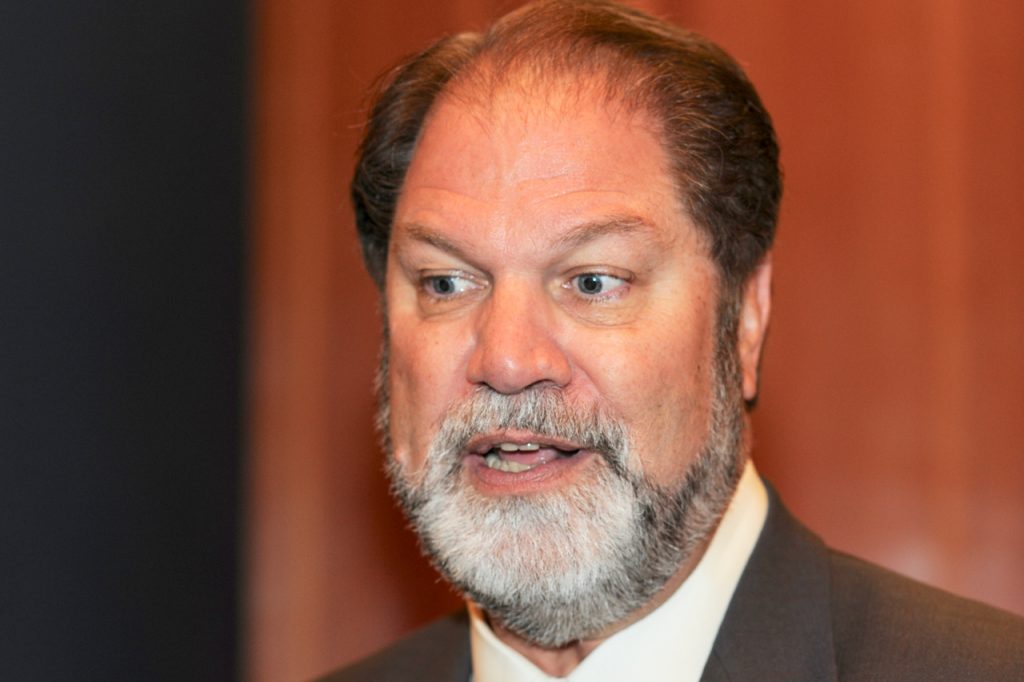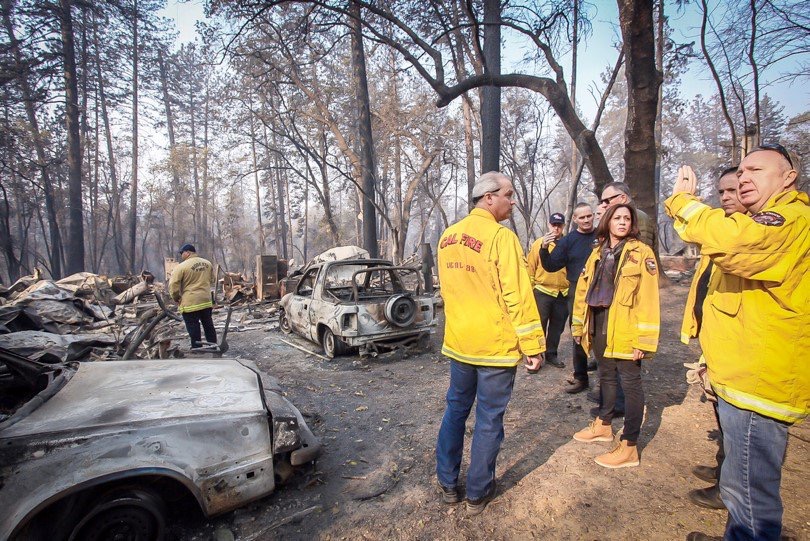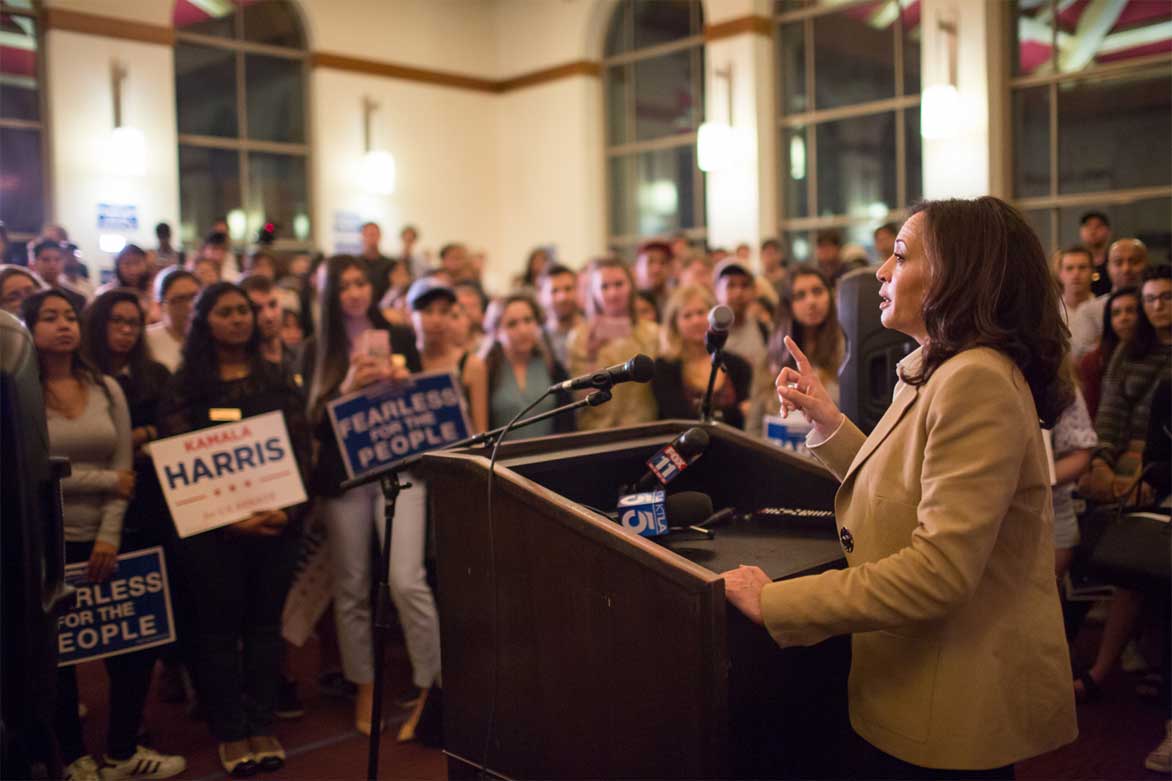
Sen. John Moorlach. (Photo: moorlach.cssrc.us)
Senator Moorlach Pushes Back Against Needle Exchange
SB 689 gives localities veto power over programs meant to curb drug abuse
By Laura Hauther, March 12, 2019 8:17 am

Opioid drug use is becoming an ever-larger nationwide issue but there is not yet agreement on how best to combat the problem. Some communities are pushing back on some of the more controversial harm reduction efforts like needle exchange programs (NEP). Such programs, opponents argue, bring more addicts into an area and cause increased crime, needle litter, and encourage more drug use.
Last Friday, in line with some of those complaints, Orange County state Senator John Moorlach introduced SB 689, a bill that would give cities local control over needle exchange programs by requiring local authorities to give any state-approved NEP the OK to operate in their communities.
Moorlach said he believes this would encourage good government etiquette and stop costly lawsuits.
“All I’m saying is let’s have a protocol in place,” Moorlach says. “These communities shouldn’t have to sue or waste money on litigation.”
Last year Orange County’s Board of Supervisors sued to stop a state-approved mobile NEP organized by Orange County Needle Exchange Program (OCNEP), a non-profit that planned to operate a mobile program in Costa Mesa, Anaheim, Orange, and Santa Ana.
San Diego County Superior Court Judge Joel R. Wohlfeil granted the board’s request for an injunction in November, citing 250,000 needles distributed that were not returned and reports of needle litter in parks and libraries. The injunction temporarily blocked the OCNEP from going forward until a hearing determines its fate sometime in 2019.
The state allows organizations to apply directly to the California Department of Health, Office of AIDS (CDH) to get authorization to run a needle exchange program once they’re met a list of requirements. The CDH may also help with supplies and funding.
Widespread IV drug use and the growing numbers of death by overdose has moved drug addiction to the center of public health programs in cities throughout the U.S. According to the Centers for Disease Control and Prevention, use of heroin and other opioids has gone up in most age groups and all income levels, even in groups with traditionally low rates of addiction, such as women and people with health insurance.
Overdose is now the most frequent cause of death in America for those under 50, and one prediction projects such deaths could rise from the current 100 a day to up to as much as 250 per day, according to a panel of public health experts in Stat magazine.
Before trying to develop their mobile program, OCNEP operated a weekly needle exchange at the Santa Ana Civic Center for two years before it was shut down in January of 2018 when their permit was revoked. They were the only needle exchange in Orange County, but even so they were only allowed to operate two hours a week, sometimes not even getting to everyone in line. They followed a protocol of giving out 20 needles to each one turned in, a strategy shown by studies to decrease rates of disease spread by dirty needles, like HIV and Hepatitis C. Clean needles also mean fewer incidences of MERSA and sepsis. The idea is to give the user enough clean needles to get them through to the next visit. To mitigate needle litter they also gave out free sharps disposal containers to encourage users to package used needles in ways where they are unlikely to puncture anyone accidentally.
In a statement on their website, OCNEP said studies show needle exchange programs usually do not result in more discarded syringes. They groups points out that “syringe litter” existed before their program and after it was shut down, citing a study that found “In cities without a needle exchange, improper disposal can be 800% higher.”
OCNEP also insists they were trying to address specific community concerns about needle litter mentioned in the lawsuit when they were forced to shut their doors; by the time the program was shut down OCNEP was cleaning up more syringes from the surrounding community than they were passing out each week.
Syringe clean-up program would have been more effective, the groups claims, if Orange County’s health department had cooperated with their efforts and helped them keep the needle exchange open more often. Ricky Blumenthal, professor of preventive medicine at USC, said in an interview with Vox that the needle litter problem was exacerbated by the program’s limited two-hour a week schedule.
“In an ideal world you would have a syringe exchange program open for 40 hours a week,” Blumenthal added.
Michael Marquesen, executive director of Los Angeles Community Health Project, said efforts to shut down NEPs are “NIMBYism masquerading as concern. This is an end run around state law. The law was changed years ago so programs could go directly to the state and avoid this kind of thing.”
‘Needle exchanges or needle mills?’
State Senator Moorlach says he responding to the needs of his community. “I’m getting support from city councils and local governments–these programs should be on the local level. They should come from the bottom up, not the top down. Are these needle exchanges or needle mills? Is this really helping addicts to move toward sobriety?”
At the press conference announcing SB 689, Moorlach was joined by a wide range of Orange County officials, including Orange Mayor Mark Murphy, Anaheim City Councilman Trevor O’Neil, Costa Mesa City Councilwoman Sandra Genis, and Orange County District Attorney Todd Spitzer.
In an interview with KTLA news, Spitzer was clear he believes the NEP’s create problems for communities: “This is about a society which is starting to sanction this kind of behavior and trying to tell all of us that it’s OK. It’s not OK. We’re losing our neighborhoods.”
Moorlach also insists this is not an attempt to stop IV drug users from getting clean needles to prevent the spread of disease, saying anyone can go to a local pharmacy to exchange needles.
While the law requiring a prescription for syringes changed in 2015, pharmacies are still allowed to deny the request if they suspect IV drugs use. And they’re not free.
Scott Davis, former needle exchange coordinator at HIV Alliance in Oregon, said NEPs are not only a way for IV drug users to access a wide range of health care services, but also provide with each contact an opportunity to for a drug user to opt for treatment, as shown in several studies.
“It might take 20, 30, even 50 contacts to build that level of trust. It helps get them into treatment.” Davis said. “When they come to the exchange they’re treated with kindness and dignity. It makes a difference.”




Addiction is not a disease, it is a choice. Providing clean needles to an addict who clearly doesn’t care about his own body and allowing him to dispose of them wherever they choose is absolutely disgusting. We are finding dirty used needles buried in the sand by the rivers, in sewers, vaults, bushes and canals.
What about my childs well being? You people have no forethoughts to providing solutions that aare well thought out. Everything is a knee jerk reaction. We should be able to sue the idiots that are allowing these addicts to have syringes and the ability to hurt kids and normal citizens.
The needle exchange program is set up to develop relationships with the people in the exchange, and then refer them to mental health and substance abuse agencies.